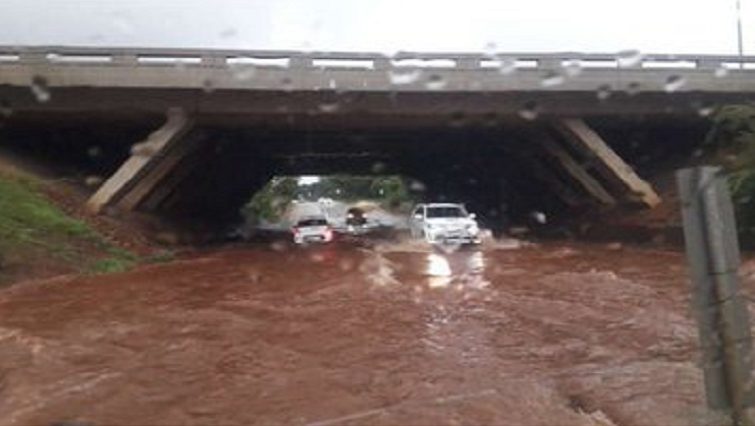
Floods shut down mines, worsen electricity crisis in South Africa
Mines across South Africa are shutting down after flash flooding caused the largest power blackouts in more than a decade, threatening a key export sector in a further blow to the country’s already slowing economy.

Photo courtesy:SABC December 2019
Heavy rains across parts of South Africa have submerged whole neighbourhoods, leading to mass evacuations and aggravating problems at state-owned utility Eskom, which has been struggling to keep the lights on since 2008.
Harmony Gold, Impala Platinum, and Sibanye-Stillwater all said they had been forced to cut production since Monday owing to power shortages.
“There are very few underground mines that operated overnight and will be operating normally today,” said a spokesman for the Minerals Council, an industry body.
The mining industry contributed 350.8 billion rand ($23.85 billion) to the South African economy in 2018, according to the Minerals Council, around 7% of gross domestic product (GDP).
Eskom said on Tuesday it planned more load-shedding, a South African term for planned power cuts, having cut up to 6,000 megawatts (MW) from the national grid on Monday after flooding triggered failures at its Medupi coal fired plant.
President Cyril Ramaphosa cut short a state visit to Egypt in order to meet Eskom officials, local news agency EWN said on Tuesday. The presidency did not immediately respond to a request for comment.
“The ongoing load shedding is devastating for the country … causing our economy great harm and disrupting the lives of citizens,” Ramaphosa said in a statement earlier on Tuesday. “The energy challenges in this country will not be resolved overnight.”
Eskom’s chief operations officer Jan Oberholzer told the eNCA news channel that the crisis was “manageable” with 4,000 MW of Monday’s outages attributable to the flooding.
“The outlook for this week is to maintain load shedding because of the weather, because of the coal handling challenges that we’ve got,” he said.






